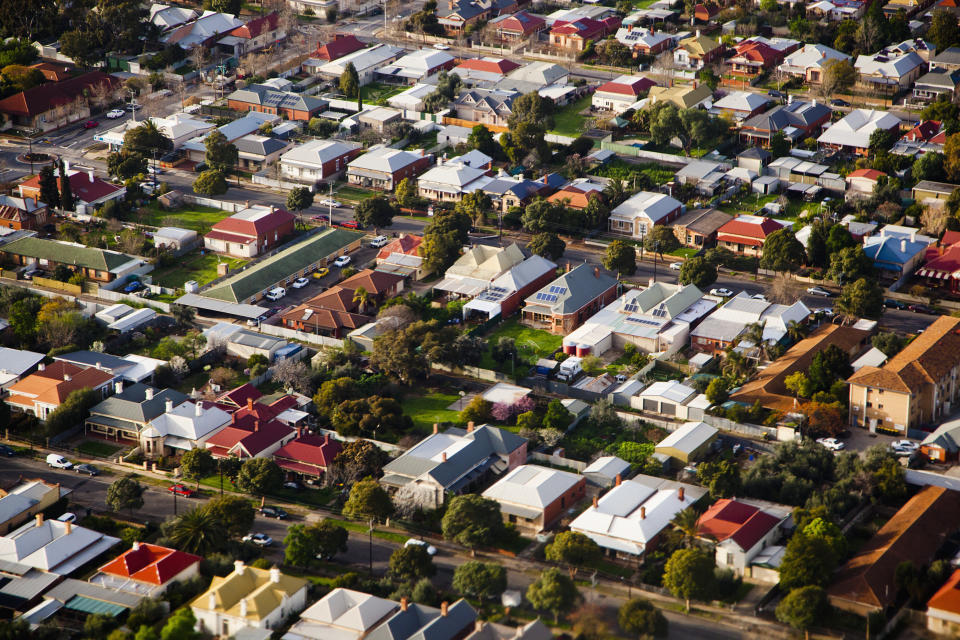What an RBA rate cut will mean for your house price

Homeowners can hope for an increase in property values
Sellers can expect more
Borrowers can borrow more
Investors should exercise caution
Australia is in the grips of a housing downturn like no other, drawing comparisons to the market performance during the GFC and now spreading to include previously strong regions.
But with the Reserve Bank of Australia expected to cut rates from 1.50 per cent to 1.25 per cent on Tuesday 4 June, the Australian property market could be about to shift gears.
And if you’re selling, this is probably a good thing.
What does it mean for my house price
Historically, interest rate cuts have pushed property values up as borrowers have found it easier to access finance at lower interest rates. Borrowers’ buying power is subsequently boosted.
Recent RBA research found interest rates to be a key driver of Sydney and Melbourne’s property growth, pointing to a one percentage point (100 basis point) reduction in interest rates leading to a corresponding 8 per cent increase in property prices over the following two years.
Related story: What an RBA interest rate cut ACTUALLY means
Related story: Here’s how the RBA rate cut will affect you, even if you don’t have a home loan
Related story: Should I choose a variable or fixed interest rate home loan?
“When rates are cut, we see a list in search activity,” the chief economist of realestate.com.au, Nerida Conisbee told Yahoo Finance.
“This activity almost always flows through to prices. It does depend on how many cuts we get and what is happening with unemployment. One cut is good but if unemployment starts rising rapidly, then it won’t be so positive on house prices.”
She said suburbs with more expensive homes will likely be the first to see an increase in values.
“We have seen elevated search activity in premium suburbs for some time now and I think there will be a ripple effect from there. Lower priced locations will get a kick early next year when the 5 per cent deposit scheme for first home buyers is launched.”
But the increase in values also depends on whether lenders choose to pass on all or some of the rate cut, and serviceability rules still need to be followed, Conisbee added.
A shifting finance landscape in recent years also has the power to mitigate some of the rate cut’s effects, as banks face stricter lending rules, limiting the amount of finance borrowers can receive.
Investors in particular have been hit hard by macroprudential measures designed to curb the amount of interest-only and investor loans which saw interest rates increase.
What does it mean for sellers
“We will see a return of sellers primarily because a rate cut will drive them into the market even more because...we're already seeing this increasing pool of buyers,” Conisbee explained.
A rate cut generally makes it easier to sell a property as more borrowers have finance, and they are also able to spend more.
“[During the downturn] we saw a lot of people switch from auction to private sale but I do think those auction numbers are going to increase and that’s primarily because there will be more buyers out there and there's going to be more competition for homes.”
What does it mean for buyers
If you’re buying, you should be able to borrow more.
But, Conisbee cautioned, just because you can doesn’t mean you should.
“Buyers do need to be very careful that when they’re taking out a loan that they don't assume that rates will stay at this record low level,” she said.
Related story: Will the banks cut rates if the RBA does?
Related story: Property market turns a corner as historic rate decision looms
“You've got to remember that if we do see a cut it will be the lowest we've seen, so although people can borrow more, they just need to be a little bit mindful that rates can go up. You need to have a buffer there.”
What does it mean for homeowners
If you’re not looking to buy or sell, the biggest change you’ll see will likely be a lower interest rate.
And if your lender doesn’t pass on the full rate cut, you should consider switching, Conisbee added.
“This is a good time to have a look at other loan providers because we haven't had a rate cut in a very long time so it's something that banks should be passing on in full.”
What does it mean for investors
A rate cut should serve as a reminder to investors to be mindful of the rent they can realistically expect from renters.
“Even though the banks may lend you more money, you do need to think about if the house is going to provide a decent yield and what's the outlook for capital growth,” Conisbee explained.
“Although the market seems to have bottomed out now, it seems unlikely that we'll get to double digit price growth again, so investors do need to be mindful that they won't get to the same sort of capital growth that they did when things were red-hot previously.”
She said attracting a tenant is critical, so investors should take care to consider the market forces when discussing rental rates with prospective tenants.
“It's interesting with landlords that they see the most important thing as having a stable tenant over having good returns, that's why it's critical if tenants ask for a reduction that landlords look at the market critically and see if that is justified because losing a really good tenant can make things really, really difficult.”
The Reserve Bank of Australia will announce its interest rate decision for June on Tuesday 4 June 2019 at 2:30pm.
Make your money work with Yahoo Finance’s daily newsletter. Sign up here and stay on top of the latest money, news and tech news.

 Yahoo Finance
Yahoo Finance 
